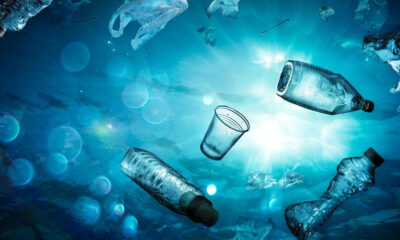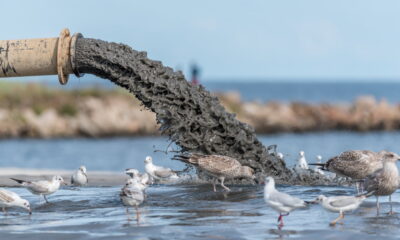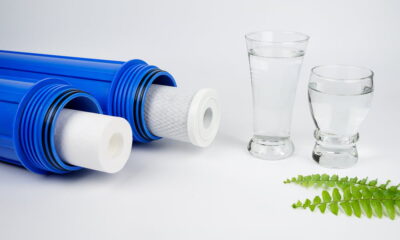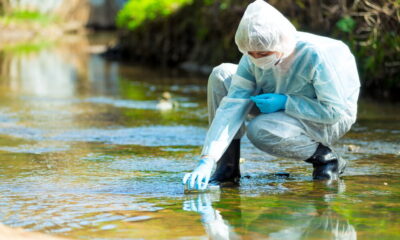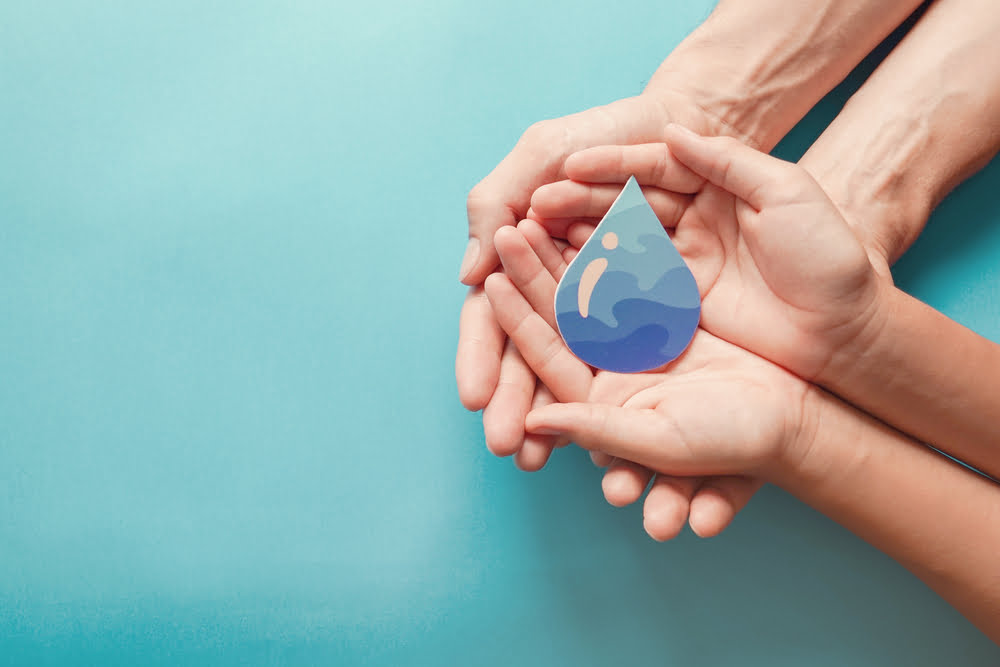
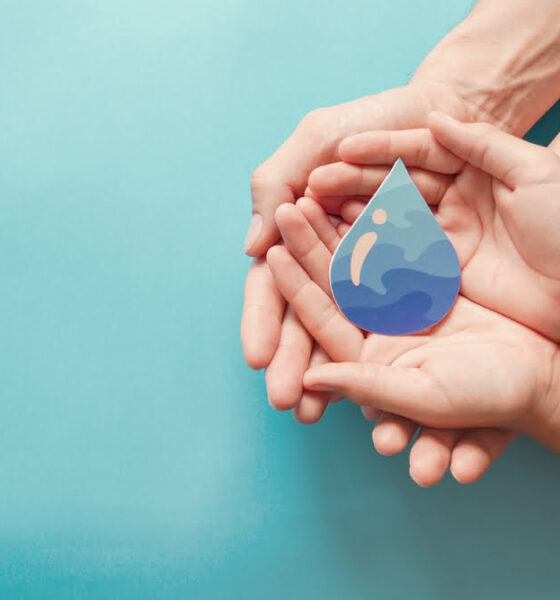
Environment
How to Prevent Water Getting Contaminated and Ensure Its Safe Consumption?
Water is an essential resource that all people need to survive. It accounts for two-thirds of the human body, and without it, we’d surely die in a matter of days. However, just because water is important doesn’t mean you should drink any water available.
Most sources are not fit for human consumption; they are contaminated with harmful chemicals and microorganisms that can make us sick if we ingest them unknowingly. Luckily there are ways to prevent contamination of potable water sources by making sure everything from your kitchen faucet down to a ditch outside your house stays clean and safe from pollution.
If you’re reading this article, then there’s likely some sort of incident where contaminated drinking water made its way into your home or community—whatever the case may be, don’t worry! We have got answers for situations involving potentially dangerous contaminants such as lead pipes leaking into residential areas where young children play outdoors on playgrounds near those same pipes every day after school.
Get Water Filters for Your Kitchen and Bathroom
A water filter is the best way to ensure that your tap water is safe for consumption. There are various types of filters available, and they can be installed in your kitchen and bathroom.
You can install a filter on the main water line, on the tap, or under your sink. Filters are also great for getting rid of bad smells in faucets and showers.
If you’re looking to protect yourself from contaminants in other parts of your home, consider installing a reverse osmosis system under your kitchen sink or near any faucet where you might use hot water during cooking. This system will remove the most harmful chemicals from household supplies, such as cooking oil or detergents, before they get into your body through ingestion or inhalation (inhaling particles).
Install a Water Filtration System to Deal with Rainwater Runoff
Rainwater runoff is one of the main sources of water contamination in your home. Rainwater runoff is any water that flows over land and picks up contaminants before it reaches your tap. This water can contain pesticides, fertilizers, and other chemicals sprayed on the ground. It can also contain dirt, dust, or other pollutants from vehicles driving on roads or agricultural areas nearby rain collection pipes. Rainwater runoff may also contain bacteria, viruses, or parasites washed into the soil by rainfall.
Use the Right Water Disposal Methods
If you want to make sure the water you use is safe for consumption, you should do a few things. The first step is to dispose of it properly. You don’t want your waste water polluting the environment, contaminating the water supply, or harming people who work in these areas.
You also have to consider what disposal method would be best for your situation and then choose it accordingly. You can get rid of this water by using filters, chemical treatments, and more advanced processes like reverse osmosis systems or ultraviolet treatment stations.
Strict Laws Make People & Authorities Ensure Water Safety
If you want to ensure that your water is safe for consumption, it is important to know how strict laws are enforced. All countries have stringent laws that ensure the safety of drinking water. The law explains how water should be treated, what chemicals should be added, and when they should be added. It also tells us how much of these chemicals can be used in the water treatment process.
If you don’t follow these rules, there will be consequences: fines or even jail time can await cheaters who try to pass off contaminated or unclean water as fit for human consumption!
It’s important to know that once a law has been approved by parliament (or a similar body), it cannot change unless there’s an outbreak or some other major event that would justify changing these standards again later on. But this doesn’t happen very often because people tend not to want anything bad happening. So, there’s usually enough pressure on governments from citizens themselves demanding better quality standards when it comes down again.
Check for the legal lawsuits, if any, in your region that compensate the residents suffering from any health issues due to air, sound, or water pollution. One popular example is the Camp Lejeune Water Contamination Lawsuit which helps people get claims if they get sick after consuming water from the Camp Lejeune area. Lawsuits like these force the authorities to take proper actions and ensure that water is safe for drinking and usage in your area.
Avoid Improper Disposal of Pollutants
You can’t dispose of pollutants in the sewer. So it’s not just a matter of keeping your neighbors from having to deal with unpleasant smells and issues like clogged drains; it’s also a matter of public health and safety.
You shouldn’t dispose of pollutants in the trash, either—the same goes for yard waste. Also, if you have animals in your household, never dump animal feces on the ground or into streams or lakes; instead, dispose of it at an approved facility that accepts pet waste (or compost it).
The best way to keep water safe to drink is simply by not polluting it in the first place!
Improve Your Septic Tank System
Septic tanks are an important part of a wastewater treatment system. Septic tanks are used to store household wastewater, so they need to be cleaned periodically. Improving your septic tank system will help ensure that the water is safe for consumption, and it can also prevent contamination.
To improve your septic tank system:
- Replace or add a filter cartridge
- Clean the lid and seal of your septic tank regularly
Keep Your Well Maintained in Good Condition
- Keep the Well cap in good condition.
- Keep the Well cap tight.
- Keep the Well cap clean.
- Keep the Well cap painted.
Remove debris and algae from around your Well casing to prevent contamination of your water supply by wild animals or birds that may have been roosting nearby. They can leave droppings on top of or even inside a water tank, where they can fall into a home’s tap water supply when someone opens up their spigot for use later on.
Ensuring Water is Safe for Consumption is Not Easy, But It’s Possible
The importance of water cannot be overstated. It is one of the essential resources for life, yet many people don’t realize how important it is. Water can be found all around us—in lakes, rivers, ponds, and even underground. But despite its availability in nature, you can’t just drink any water you find; it has to be purified before consumption so that you don’t get sick or worse.
To ensure safe drinking water and health benefits from drinking clean water, we need to understand how this resource is affected by human activities and natural phenomena such as floods or droughts, etc., why they occur at certain times, and what their impacts are on humans’ lives?
Conclusion
Clean water is the most important resource on earth; without it, we would not be able to survive. So if you are going to drink tap water, please keep this in mind and make sure you have filtered your water before consumption. Safe drinking water will keep you healthy, but it will also save money on medical bills and prevent diseases like cancer from spreading throughout our communities.
It’s up to each of us to help protect this precious resource for future generations by working together now! We can stop pollution at its source by using proper waste disposal methods, improving septic tank systems, and doing frequent repairs or upgrades when required. It’s time for everyone who cares about their health and keeping their environment clean and safe. Let’s plan for a better blue and green tomorrow.


 Features11 months ago
Features11 months agoEco-Friendly Cryptocurrencies: Sustainable Investment Choices

 Energy11 months ago
Energy11 months agoThe Growing Role of Solar Panels in Ireland’s Energy Future

 Energy10 months ago
Energy10 months agoGrowth of Solar Power in Dublin: A Sustainable Revolution

 Energy10 months ago
Energy10 months agoRenewable Energy Adoption Can Combat Climate Change


